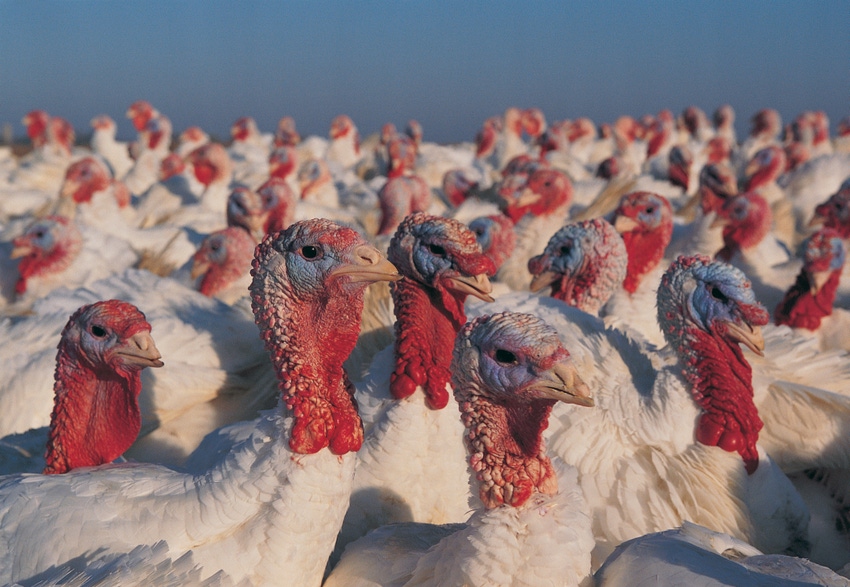H7N3 avian influenza found in commercial turkey flock in Chesterfield County, S.C.

The U.S. Department of Agriculture’s Animal & Plant Health Inspection Service (APHIS) confirmed April 9 the presence of H7N3 highly pathogenic avian influenza (HPAI) in a commercial turkey flock in Chesterfield County, S.C.
APHIS did not indicate the size of the flock in its announcement, but the report issued by the World Organization for Animal Health (OIE) notes that 34,160 meat-type turkeys were affected (1,583 birds died and the remainder was culled).
APHIS noted that this is the first confirmed case of HPAI in commercial poultry in the U.S. since 2017, and it appears that this HPAI strain mutated from a low-pathogenic strain that had recently been found in poultry in the affected area.
In 2017, H7N9 HPAI was found in two flocks in Tennessee. There was a small outbreak of H7N8 HPAI in Indiana in 2016. The largest, most recent HPAI outbreak was in 2014-15 across the Upper Midwest and other portions of the country that resulted in at least 200 cases and the deaths of millions of commercial and backyard poultry as well as wild birds.
No human cases of this H7N3 avian influenza virus have been detected, and there is no immediate public health concern. As a reminder, the proper handling and cooking of poultry and eggs to an internal temperature of 165°F kills bacteria and viruses.
APHIS said samples from the affected flock, which experienced increased mortality, were tested at the Clemson Veterinary Diagnostic Center, part of the National Animal Laboratory Network, and were confirmed at the APHIS National Veterinary Services Laboratories in Ames, Iowa. Virus isolation is ongoing.
APHIS is working closely with the South Carolina State Veterinarian’s Office, part of Clemson University, on a joint incident response. State officials quarantined the affected premises, and birds on the property were depopulated to prevent the spread of the disease. Birds from the flock will not enter the food system. As part of existing avian influenza response plans, federal and state partners are working jointly on additional surveillance and testing in the nearby area.
USDA reported this finding to OIE as well as international trading partners, the APHIS statement said. USDA also continues to communicate with trading partners to encourage adherence to OIE standards and minimize trade impacts. OIE trade guidelines call on countries to base trade restrictions on sound science and, whenever possible, limit restrictions to those animals and animal products within a defined region that pose a risk of spreading diseases of concern.
APHIS said all bird owners, whether commercial producers or backyard enthusiasts, should continue to practice good biosecurity, prevent contact between their birds and wild birds and report sick birds or unusual bird deaths to state/federal officials through either their state veterinarian or USDA’s toll-free number at 1-866-536-7593.
Avian influenza is caused by an influenza type A virus, which can infect poultry (such as chickens, turkeys, pheasants, quail, domestic ducks, geese and guinea fowl) and is carried by free-flying waterfowl such as ducks, geese and shorebirds. Besides strain and subtype classifications, avian influenza viruses can be classified by their pathogenicity (low or high) — the ability of a particular virus strain to produce disease in domesticated poultry.
About the Author(s)
You May Also Like

.png?width=300&auto=webp&quality=80&disable=upscale)

